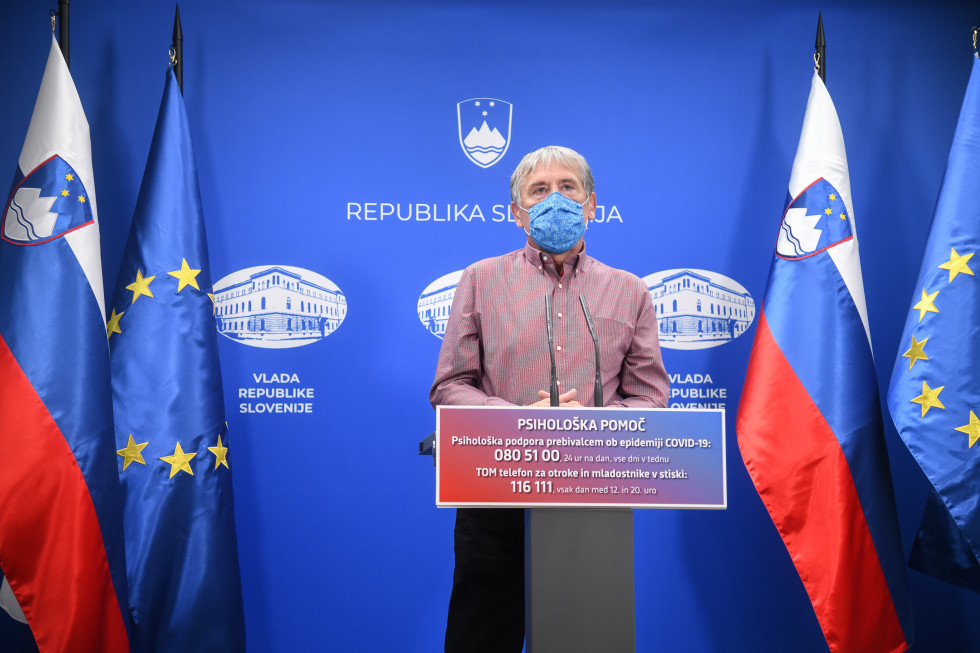Deana Potza: Adults are expected to behave responsibly. Set an example

Psychologist Peter Markič. | Author Nebojša Tejić, STA
She noted that a minority do not accept the measures and are unwilling to observe them, which they express in a variety of ways. “At the health inspectorate we saw various forms of inappropriate communication even in the summer, for example inspectors being abused and insulted. A renewed rise in verbal assaults and other forms of inappropriate communication has been seen over the autumn, and has coincided with the measures being tightened, most notably mandatory mask wearing in the open air. Alongside the insults and the various gestures, which you can probably all imagine, in Štajerska there was an instance of physical assault this autumn.”
She added that controls were therefore often being conducted together with police officers. Threats have also started appearing on Facebook, including the doxing of all health inspectors in Slovenia, with calls for acts of revenge on them and their family members, even children. “Any incident resembling a criminal offence will be reported to the relevant authorities by the inspectorate,” reiterated Ms Potza. In her view, conducting controls and issuing fines are not a hobby, and inspectors are simply doing their job.
She closed by reminding the public that commendations and improved numbers will be of no help if people continue to hold private gatherings: “Adults are expected to behave responsibly, but nobody can be forced to do so. We all have to reach this awareness ourselves. Set an example.”
Peter Markič, a psychologist, then explained how important it is to make time for ourselves, even during the epidemic. He noted that the need for self-care became evident back in the first wave of the epidemic. This experience confirms the need for all of us to take care of ourselves, or run the risk of burnout.
Three conditions are vital in human behaviour: that someone knows, that they are able, and that they want to. The last is the most important. His assessment was that in this situation many are trying to do more than they can. The pressure is even greater in difficult conditions, in small apartments, where 24-hour proximity is testing the patience of many couples. It is the duty of us all to ease the burden on others. “We can spot people under pressure, and can help them to the best of our ability,” advised Mr Markič, adding: “Look after yourself, and don’t forget others who need your help.”
His view is that selflessness has a limit, which we would do well not to transgress. Knowing your limits is a sign of strength. Unplugging from work is also vital, and eases the pressure. According to Mr Markič, we have to ensure that we balance the demands placed on us by the epidemic with our own capacity on the other side of the scales.
“Everyone carries four energy accumulators inside: physical, emotional, social and spiritual. People are holistic creatures, and we have to be sure to regularly charge all four,” he explained.
He ended by issuing a reminder that what we are going through now is not the first crisis in our lives. Many of us have overcome things in the past, and have learned something in every instance. This too will pass. “Taking time for ourselves is not easy, but it is essential if we want to continue helping others, otherwise sooner or later we will be the ones who need help,” said Mr Markič.
The government spokesperson Jelko Kacin concluded the conference by drawing attention to two phone helplines for psychological aid and support. “We are aware that the epidemic has been going on for some time now, and for many it feels like longer than it actually has been. In the current circumstances, the key is working together, and behaving responsibly and considerately. We can do this together. Stay healthy!” were Mr Kacin’s final words.

